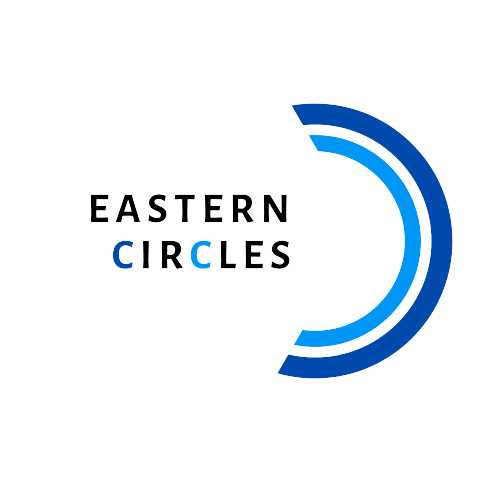New leaders in the State Property Fund (SPF) and the Antimonopoly Committee (AMCU)
Olga Pishchanskaya, former head of the AMCU has replaced Umerov as head of the State Property Fund (SPF). Her leadership role at the AMCU has been overtaken by the former head of the Donetsk regional military administration and regional prosecutor Pavlo Kyrylenko.
Why are these institutions important and who are their new leaders?
The State Property Fund (SPF)operates state-owned enterprises and assets worth billions of hryvnias, while the Antimonopoly Committee (AMCU) can impose heavy fines on businesses for violating antimonopoly laws and process complaints on public procurement rules violations.
The SPF mission is to increase the investment attractiveness and competitiveness of Ukraine's economy through transparent, professional management of the state property. Before 2022, SPF was a household name for oligarchic influence. Since the full-scale war and the resulting increasing anti-corruption pressure from international donors, amplified by Ukraine’s civil society, SPF has undergone a change of management and modus operandi, reversing its reputation entirely (see more on this in our previous Newsletter 19 from August 31).
The three most important results of its work in the past 1.5 years are:
- Launch of a small privatization fund and preparation works to expand it.
- Restructuring of over 3600 and liquidation of 1300 unprofitable companies.
- Organizational changes, which include giving more power to the head of SPF, e.g. to appoint his deputies.
Umerov's successor should be former head of the AMCU Olga Pishchanskaya, who previously worked for more than 10 years in the metallurgical companies ArcelorMittal Kryvyi Rih and Metinvest.
On September 2, 2019, Zelenskyy appointed Pishchanska to the position of First Deputy Head of the AMCU. And in July 2020, the Verkhovna Rada appointed Pishchanska as the head of the Antimonopoly Committee. According to Kyiv Post, Pishchanska had personal connections to President Zelensky through her sister, a childhood friend of the president.

- by monitoring companies’ compliance with the legislation on protection of competition.
- by controlling companies’ behavior to avoid price manipulation by trusts and by price regulation for goods and services by natural monopolies.
- by encouraging fair competition through the creation of a competitive environment in the field of public procurement.
Under Pishchanska, the AMCU worked with the EU and USAID to improve personnel training and introduce systematic procedures on how to conduct inspections, calculate fines, access information and deal with anti-monopoly cases, resulting in national laws on the subject (Law 5431). Other results of AMCU work include systematizing the practices of the tender board, which considers complaints from participants in public procurement. While the procedure for dismissal and appointment of persons holding positions in the Committee still has to be improved. Since the introduction of martial law in early 2022, the AMCU's powers were significantly reduced, and political influence remains the biggest challenge for the Committee.
A native of Makiivka, Donetsk Oblast, he graduated from the Yaroslav Mudryi Law Academy of Ukraine with a degree in Law in 2008 and since worked in the prosecutor's offices of Donetsk region, the Crimea and the Prosecutor General's Office. On September 22, 2017, he was appointed military prosecutor of the Uzhhorod garrison.
Kyrylenko has been personally affected by the Russian invasion of Donetsk region in 2014, when his older brother Yevhen, who had worked in the Ukrainian law enforcement agencies, defected to the so-called DPR and has been working as an operative in the DPR's "Ministry of State Security" ever since.

USA
- On August 29, the Biden Administration announced the next package of military assistance to aid Ukraine, containing important capabilities such as “AIM-9M missiles for air defense, munitions for High Mobility Artillery Rocket Systems, 155mm and 105mm artillery ammunition, mine-clearing equipment, Javelin and other anti-armor systems and rockets, over 3 million rounds of small arms ammunition, ambulances, demolition munitions for obstacle clearing, as well as spare parts, services, training, and transportation.
- In September, US President Joe Biden decided to supply Ukraine with long-range army tactical missile systems (ATACMS), an important boost to Kyiv’s capacity to target Russian military logistics at long-range distances as the country prepares for a second winter at war.
As President Biden announced in September, the Department of Defense is sending an additional security assistance package to meet Ukraine's critical security and defense needs. This package includes additional capabilities to strengthen Ukraine's air defenses as it faces brutal aerial assaults from Russia, dual-purpose improved conventional munitions (DPICM) which are helping Ukraine on the battlefield, anti-tank weapons, and other equipment to meet Ukraine's critical needs and to help Ukraine counter Russia's ongoing war of aggression.
The capabilities in this package, valued at up to $325 million, include:
- AIM-9M missiles for air defense;
- Additional ammunition for High Mobility Artillery Rocket Systems (HIMARS);
- Avenger air defense systems;
- .50 caliber machine guns to counter Unmanned Aerial Systems;
- 155mm artillery rounds, including DPICM;
- 105mm artillery rounds;
- Tube-Launched, Optically-Tracked, Wire-Guided (TOW) missiles;
- Javelin and AT-4 anti-armor systems;
- Over 3 million rounds of small arms ammunition;
- 59 light tactical vehicles;
- Demolitions munitions for obstacle clearing; and
- Spare parts, maintenance, and other field equipment.
EU
- In September, The Europea Commission has paid €1.5 billion under the Macro-financial Assistance +EN package for Ukraine, worth up to €18 billion. With this instrument, the EU seeks to help Ukraine cover its immediate funding needs, with stable, predictable and sizeable financial support in 2023. With today's payment, Ukraine has so far received €13.5 billion this year under Macro-financial Assistance.
- In September, European countries issued new multi-year commitments: €10.5 billion 4-year military support package of Germany (2024–2027), €6.6 billion “Nansen Support Program” over 5 years from Norway. Additional multi-year packages were committed by Denmark, the UK, Switzerland, Sweden, Portugal, and Lithuania.
Japan
- In September, 21.8 billion hryvnias from Japan will be allocated for Ukraine's recovery projects.
